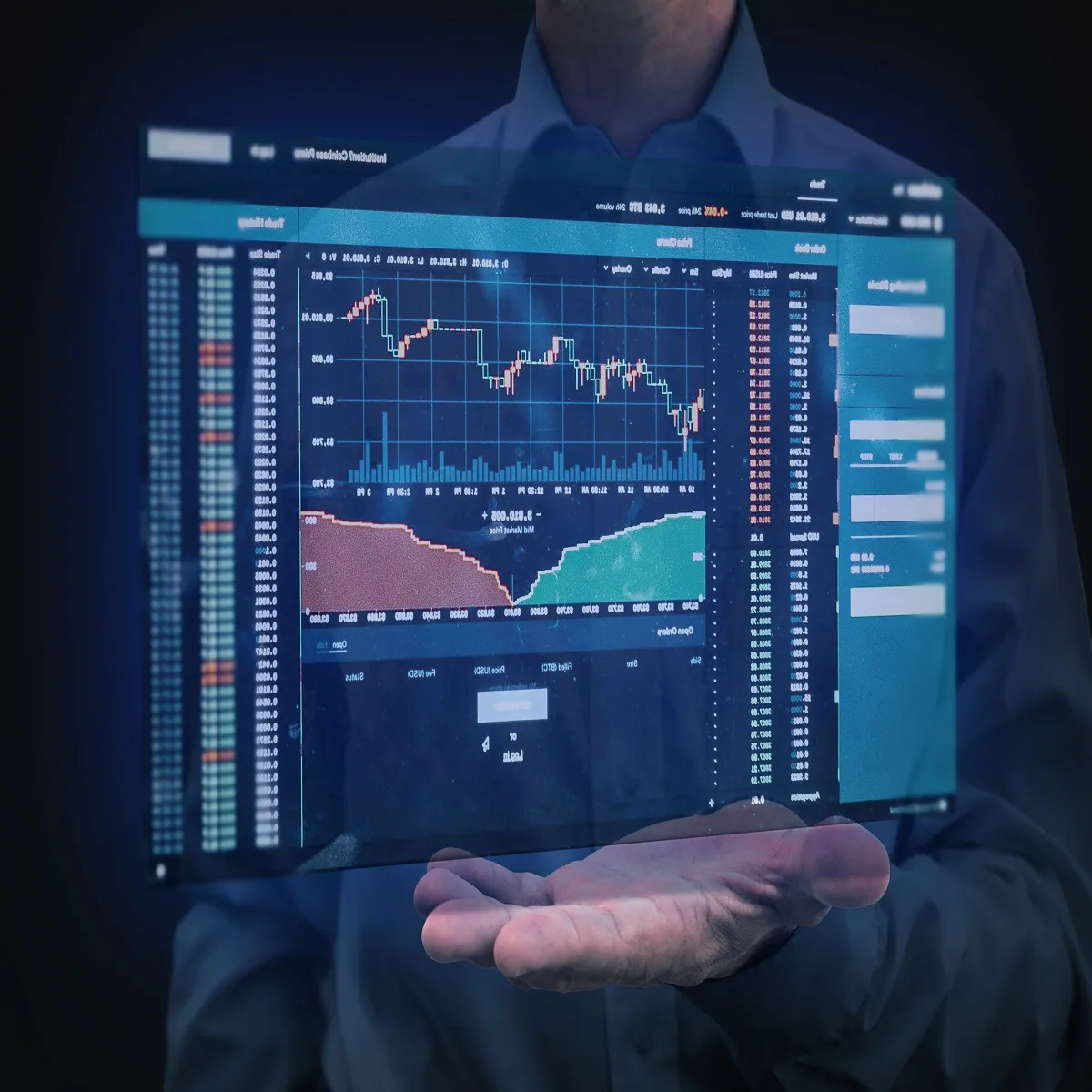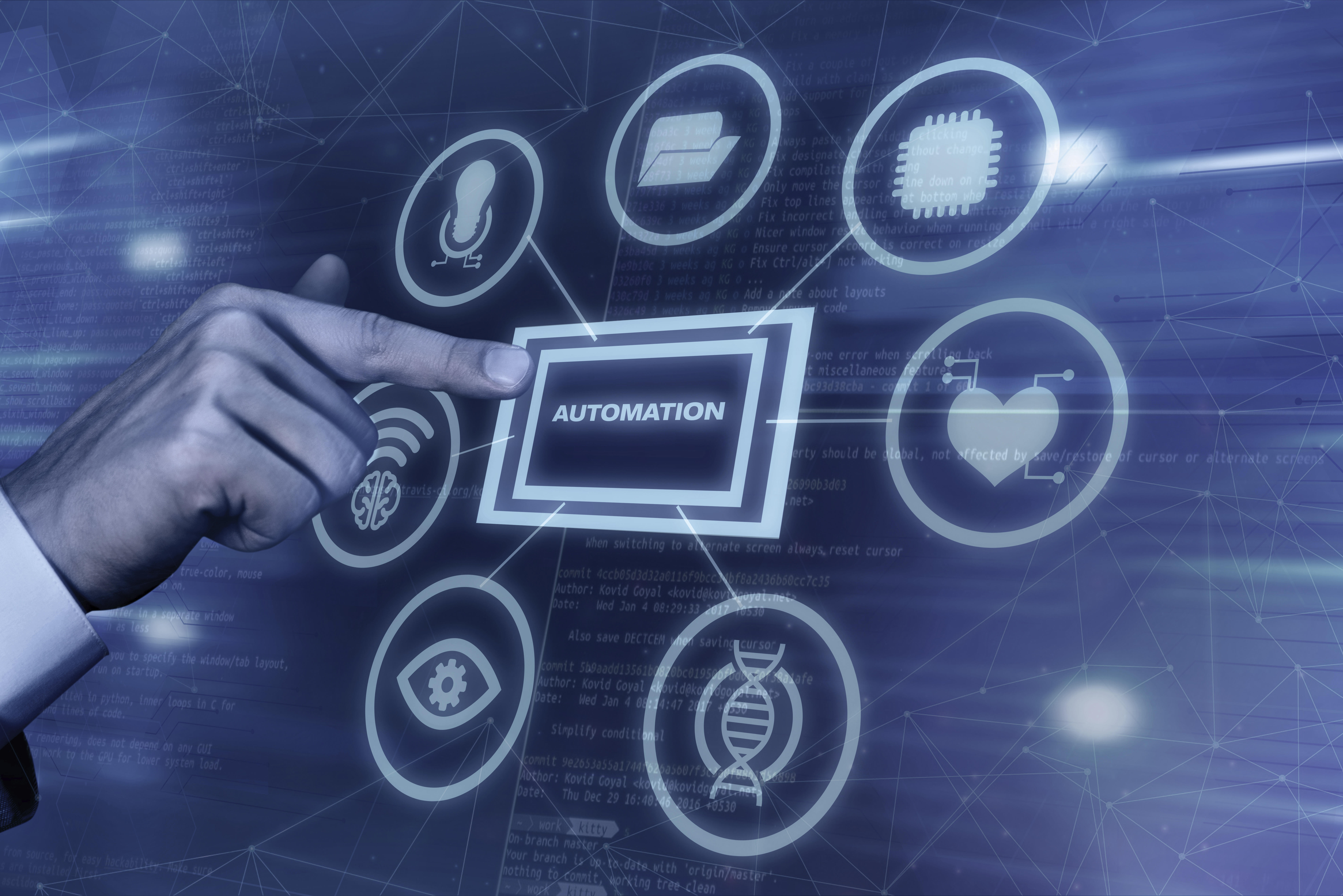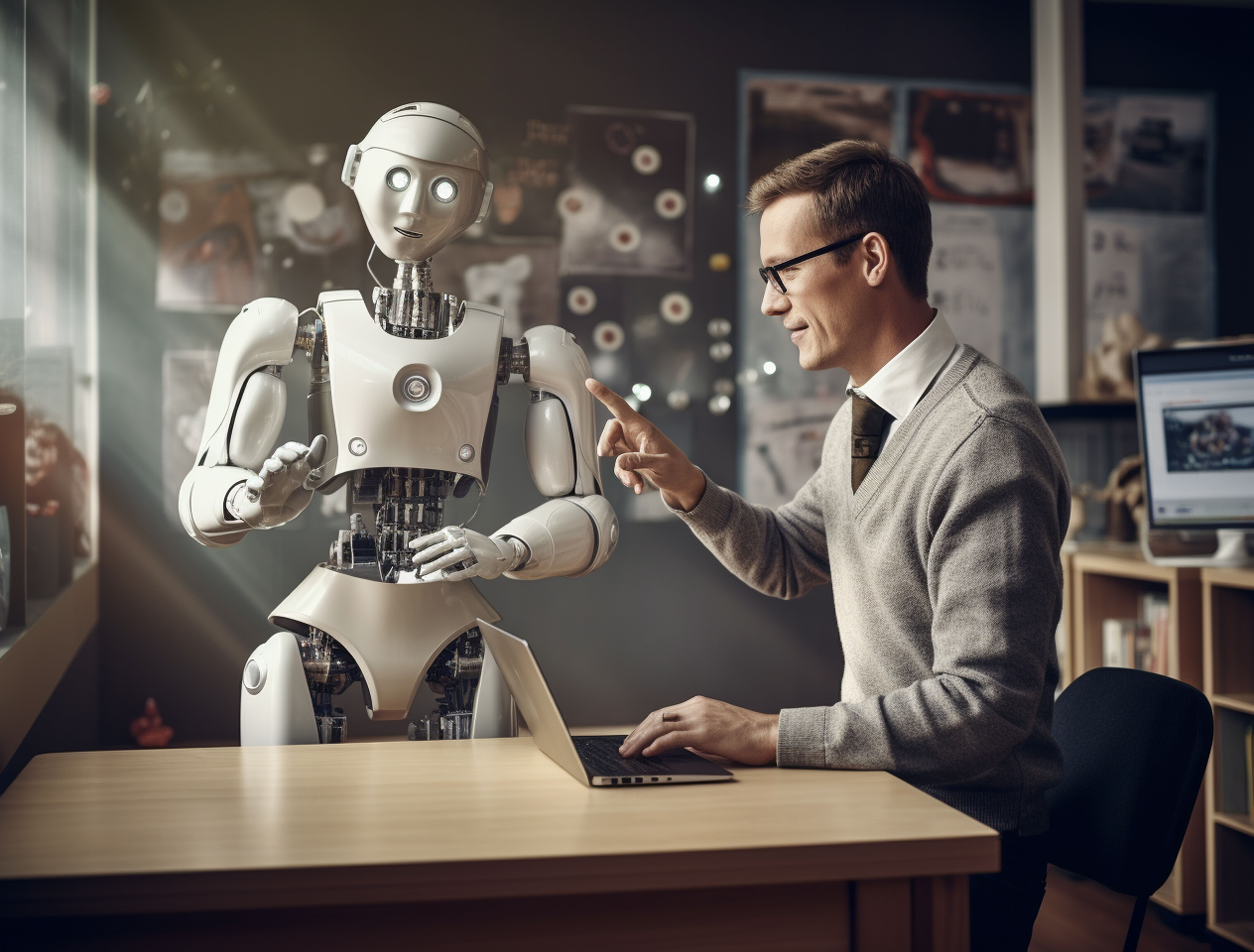AI and Stock Market: A Complete Guide
What is AI and How Does it Relate to the Stock Market?
Artificial Intelligence (AI) refers to the ability of machines to perform tasks that would normally require human intelligence. Unlike traditional computing, which relies on explicit instructions, AI systems are designed to learn and adapt from data. This learning process enables AI to make predictions, analyse patterns, and perform tasks such as speech recognition, decision-making, and problem-solving. Key components of AI include machine learning, natural language processing, and computer vision, each allowing AI to process and understand complex data in a way that mimics human cognitive functions.
One of the most powerful aspects of AI is its ability to process vast amounts of information at incredible speeds. AI uses algorithms—step-by-step instructions that guide its decisions to analyse large datasets, uncover trends, and automate decision-making. In fields like finance, where timely, data-driven decisions are critical, AI offers the advantage of quickly scanning financial reports, market data, and news in real time.
How is AI Transforming Financial Markets?
In the financial world, AI is becoming a game-changer. It is revolutionizing how investors, banks, and institutions analyse market data and make decisions. AI systems can scan news headlines, economic indicators, and even social media in real time to detect trends that could influence stock prices. These insights help investors make smarter, faster, and more calculated decisions. AI also reduces the emotional component of trading, offering more rational and data-driven strategies.
Practical Applications of AI in Finance
Examples of AI in finance are everywhere. Trading bots execute thousands of transactions in seconds, taking advantage of tiny market changes. AI-driven fraud detection systems analyse patterns and flag suspicious activity faster than human analysts ever could. Portfolio management tools use AI to create personalized investment strategies based on an individual's goals, income, and risk tolerance.
All of these developments highlight the growing impact of AI and stock market technologies, paving the way for more efficient, secure, and intelligent investing in the years to come.
How has AI Evolved in the Stock Market?
The use of algorithms in the stock market dates back to the 1970s, with early attempts at automated trading focusing on rule-based systems that could execute trades according to predefined instructions. These systems, however, were relatively basic compared to today's advanced AI tools. The main goal of algorithmic trading during this period was to speed up the execution of orders and reduce human error. However, they were limited by the technology of the time, with simple strategies based on technical indicators and patterns that didn’t involve learning or adaptation from real-time data.
Milestones in AI Adoption by Hedge Funds and Trading
As technology progressed, the 1990s and early 2000s saw the rise of more sophisticated algorithmic trading systems, especially within hedge funds and large financial institutions. These firms began adopting AI and machine learning to enhance trading strategies, enabling models to analyse market data and adapt in real-time. A major milestone in the evolution of AI on the stock market came with the introduction of high-frequency trading (HFT), where AI-powered algorithms could execute trades within fractions of a second, taking advantage of minuscule market inefficiencies.
Current State of AI Tools in the Stock Market
Today, AI is deeply integrated into the stock market, with a wide range of tools available to both institutional investors and retail traders. AI systems are now capable of performing complex tasks, such as predictive analytics, sentiment analysis, and real-time data processing, all of which help investors make informed decisions. AI-driven trading bots, for example, can analyse news, social media trends, and economic indicators to predict market movements. These developments highlight the growing importance of ai on stock market, revolutionizing how trading strategies are developed and executed in modern financial markets.
What Key AI Technologies are Used in the Stock Market?
Machine learning (ML) and deep learning (DL) are subsets of AI that play a critical role in the stock market. Machine learning algorithms analyse historical data to identify patterns and predict future trends, while deep learning, a more advanced form of ML, uses neural networks to simulate human decision-making. Both technologies are particularly effective in developing trading models that adapt to new data, allowing them to improve their accuracy over time. These techniques are often used for stock market prediction ai, helping traders anticipate price movements, market shifts, and volatility.
Natural Language Processing (NLP)
Natural Language Processing (NLP) is another powerful AI technology used in the stock market. NLP enables AI systems to understand, interpret, and generate human language. In the financial sector, NLP is primarily used to analyse news articles, earnings reports, and financial statements in real time. By processing vast amounts of text data, NLP can extract meaningful insights that guide investment decisions. For example, it can detect sentiment in news stories or company press releases, helping investors gauge the market’s mood or predict stock price fluctuations based on public sentiment.
Predictive Analytics
Predictive analytics involves using AI algorithms to forecast future trends based on historical data. In the stock market, this technology is used to predict the movement of stock prices, identify profitable trades, and manage risk. By analysing large datasets, predictive analytics can provide investors with actionable insights on when to buy, sell, or hold assets. This helps traders make more informed, data-driven decisions and minimize potential losses.
Sentiment Analysis
Sentiment analysis uses AI to analyse social media posts, news, and financial articles to gauge the emotional tone surrounding a particular stock, company, or market sector. By identifying whether the general sentiment is positive, negative, or neutral, investors can better predict market reactions and make more informed trading decisions. This technology is crucial for understanding public perception, which can often drive stock price changes.
Robotic Process Automation (RPA)
Robotic Process Automation (RPA) is used to automate repetitive tasks in trading and financial operations. RPA technology can handle tasks such as data entry, transaction processing, and compliance checks, freeing up time for traders to focus on more strategic activities. In the stock market, RPA ensures faster execution of trades and reduces the likelihood of human error, allowing for more efficient trading operations.
How Does Stock Market Prediction AI Work?
Stock price forecasting AI utilizes various models to predict stock price movements and market trends. These models rely on historical data, market indicators, and advanced machine learning techniques to forecast future behaviour in the stock market. The primary objective is to analyse patterns and trends from past data to identify correlations that may help predict upcoming market changes.
Data Used for Prediction
Key inputs include historical price data, which helps the model identify price trends over time. Trading volume is another critical data point, as it can indicate the level of market activity and investor interest in a particular stock. AI models also consider external data such as news, social media sentiment, and economic indicators. By analysing these diverse data sources, AI can gain a comprehensive understanding of market sentiment, which plays a crucial role in stock price movements.
Types of Models
Several types of models are used in stock market prediction. Regression models predict the future price of a stock based on historical data and trends, while classification models categorize stock movements (e.g., up, down, or stable). Neural networks, a type of deep learning model, are particularly effective for complex predictions, as they can analyse large datasets and detect intricate patterns in market behaviour. These models can be trained on vast amounts of data and adapt over time, improving their predictive accuracy.
Examples of AI Predicting Trends or Stock Movements
Stock price forecasting AI has been successfully used to forecast market trends and individual stock movements. For example, AI-powered tools have predicted large price swings following major economic events, such as earnings reports or changes in government policy. In some cases, AI models have accurately predicted the rise or fall of stock prices based on news sentiment or social media activity, demonstrating the growing impact of stock market prediction AI in financial decision-making.
How Can Beginners Explore AI for Stock Market Investing?
Before diving into AI tools for stock market investing, it's essential for beginners to understand the basics of stock market terminology. This includes familiarizing yourself with terms like stocks, bonds, dividends, price-to-earnings ratio, market capitalization, and volatility. Having a strong grasp of these concepts will help you better interpret the results generated by AI models and understand how they relate to real-world market behaviour.
Understand How Do AI Models Work?
Once you’re familiar with stock market fundamentals, it’s important to learn how AI models work in the context of investing. AI systems use machine learning and data analytics to make predictions about stock prices based on historical data, market sentiment, and economic indicators. Understanding the basic principles of machine learning, such as supervised and unsupervised learning, as well as the different types of algorithms used in AI models, will give you an edge in interpreting how AI predicts stock movements
Collect and Clean Financial Data
One of the first steps in using AI for stock market investing is gathering and preparing financial data. This includes historical stock prices, trading volumes, and relevant news articles. Data cleaning is a crucial process where you remove errors or irrelevant information, ensuring the data is suitable for training AI models. Tools like Python and R are commonly used for data collection and cleaning.
Try a Beginner-Friendly AI Tool or Platform
For beginners, the best way to get started is by using user-friendly AI platforms designed for stock market analysis. These tools often come with pre-built models and intuitive interfaces that allow you to analyse stock data and test predictions without needing advanced technical skills. Many platforms offer simulations, so you can practice and learn without financial risk.
Analyse Results and Improve Predictions
After using AI tools to analyse stock market data, it’s essential to review the results and refine your predictions. This process may involve adjusting the input data, modifying the AI model, or testing different strategies. The more you experiment with different approaches, the better your understanding of how AI and the stock market can work together to inform smarter investment decisions.
What are the Popular AI Tools and Platforms for Stock Market Analysis?
There are a variety of AI tools and platforms available for stock market analysis, ranging from free resources to advanced paid platforms. Finviz, for example, offers a free stock screener with powerful visualization tools to filter stocks based on technical indicators and fundamental data. It’s often used by retail traders for quick stock analysis. On the paid side, platforms like QuantConnect provide robust algorithmic trading capabilities, offering both back testing and live trading features. QuantConnect integrates machine learning algorithms and vast datasets for creating AI-powered trading strategies. MetaTrader is another popular platform used for trading, with AI plugins that enable automated trading and analysis.
Tools Used by Retail Traders vs. Institutional Investors
The type of AI tools used can vary significantly between retail traders and institutional investors. Retail traders typically prefer platforms like Finviz, Robinhood, and eToro, which are user-friendly and offer easy access to stock market analysis with some AI features. These platforms help individuals create basic trading strategies or automate simple tasks. In contrast, institutional investors and hedge funds often use more advanced platforms like QuantConnect or proprietary AI systems, which are capable of processing massive datasets, implementing machine learning algorithms, and executing high-frequency trades. These tools require more technical expertise but allow for more sophisticated trading strategies and in-depth market analysis.
Pros and Cons of Using AI Tools for Trading
AI tools for stock market analysis have many advantages, including the ability to process large amounts of data quickly, identify patterns, and generate predictions that would be difficult for humans to spot. They can also automate trading, saving time and reducing the emotional aspect of decision-making. However, AI on stock market tools are not without their drawbacks. While AI systems can be highly effective, they are also dependent on the quality and quantity of data they process. Inaccurate or biased data can lead to incorrect predictions.
What are the Risks and Limitations of Using AI in the Stock Market?
One of the significant risks associated with AI and the stock market is overfitting. Overfitting occurs when an AI model becomes too aligned with historical data, making it effective at predicting past events but less reliable for future predictions. This happens because the model becomes "too specific," capturing noise or anomalies in the data rather than true market patterns.
Regulatory Concerns
As AI continues to play a larger role in the stock market, regulatory concerns have arisen. Financial authorities worry about the transparency and potential risks associated with AI-driven trading strategies. The use of AI in high-frequency trading, for instance, can lead to sudden market fluctuations, as algorithms react to small, rapid price movements. To mitigate these risks, regulatory bodies are working on creating frameworks that ensure AI systems comply with market rules and do not destabilize the financial markets.
Emotional Detachment and Overreliance on Automation
AI offers the benefit of removing emotional biases from trading decisions, but overreliance on AI systems can be dangerous. Automated trading systems lack the ability to consider factors such as market sentiment, geopolitical changes, or broader economic shifts, which can heavily influence stock prices. By focusing too much on automated systems, traders risk missing out on important qualitative insights.
Importance of Human Judgment
Despite the advantages of AI, human judgment remains essential in stock market investing. AI and the stock market tools can analyse vast amounts of data and generate predictions, but they cannot replace the intuition and contextual knowledge of experienced traders. Understanding market psychology, geopolitical events, and corporate strategies requires human insight. Combining AI-driven insights with human oversight ensures a balanced approach to investing, which is crucial for long-term success.
What is the Future of AI in the Stock Market?
As we move into 2025 and beyond, the role of ai on stock market tools is expected to grow significantly. AI will continue to evolve, with machine learning algorithms becoming more sophisticated and able to make predictions with higher accuracy. One trend to watch is the increasing integration of alternative data sources, such as social media sentiment, satellite imagery, and environmental factors, which can provide unique insights into market movements.
Increasing Role of AI in Retail Investing
AI is no longer just a tool used by large institutional investors its adoption among retail investors is growing rapidly. Platforms like Robinhood, eToro, and others are increasingly offering AI-powered trading tools and insights to individual investors. These tools help retail traders make informed decisions by analysing stock trends, predicting price movements, and suggesting personalized trading strategies. In 2025 and beyond, we can expect a democratization of AI in the stock market, allowing more retail investors to access sophisticated trading strategies once reserved for institutional players.
The Convergence of AI with Blockchain and Fintech
The convergence of AI, blockchain, and fintech is set to revolutionize the stock market. AI can enhance the security and efficiency of blockchain-based transactions, making processes like clearing and settlement faster and more transparent. With blockchain’s decentralized nature, AI can optimize financial systems, improve risk assessment, and facilitate more efficient trading. Additionally, fintech companies are increasingly integrating AI into their platforms to offer personalized financial advice, predictive analytics, and smarter investment tools.
Conclusion
AI is transforming the stock market, offering valuable insights for investors and traders. By leveraging AI and the stock market tools, market participants can analyse vast datasets, predict trends, and optimize strategies more efficiently. For beginners, understanding how AI on stock market tools work and starting with user-friendly platforms is key to making informed decisions. It's also essential to approach stock market prediction AI responsibly, combining AI insights with human judgment. With continuous learning and experimentation, beginners can grow their knowledge, harness the power of AI, and improve their stock market success over time.








